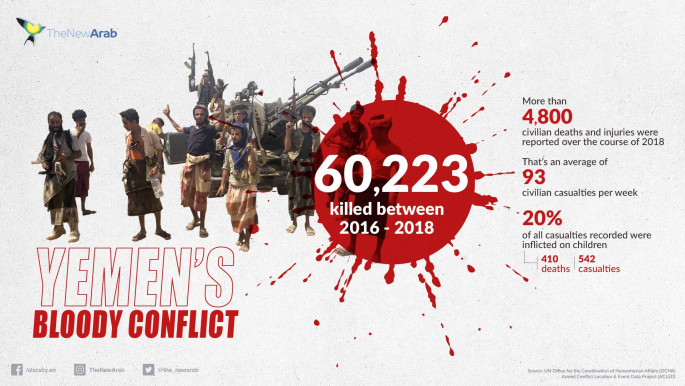Fears for Yemen as Trump allows defence giant to build smart bombs in Saudi Arabia
The Trump administration last month blocked attempts by Congress, where bipartisan fury over Saudi human rights abuses has often risen, to stop the transfer of more than 100,000 bombs to Saudi Arabia with an emergency declaration that allows arms giants like Raytheon to bypass congressional approval for arms sales to the Middle East.
The declaration came as part of the administration's response to rising tensions in the Gulf with Iran, in part stoked by hawkish Trump adviser John Bolton.
Arms sales, the declaration said, could now be expedited to states in the Middle East that need to "deter and defend themselves from the Islamic Republic of Iran".
While members of Congress initially opposed the emergency declaration on humanitarian grounds, it has also prompted fears that it will allow Saudi Arabia to build their own versions of high-tech US bombs with the assistance of top arms company Raytheon, The New York Times reported.
That provision within the emergency declaration was revealed to Congress last week.
Raytheon will be enabled to team with the Saudis and start assembling the control systems, guidance electronics and circuit cards that form the foundation of the company's Paveway smart bombs.
Read more: How a legal loophole is helping Trump sell arms to Saudi Arabia
Such technology has until now been closely guards by the US government for national security reasons.
The Raytheon deal that Congress failed to block will mean the delivery of 120,000 precision-guided bombs to Saudi Arabia, adding to a stockpile that is already tens of thousands strong.
The House Foreign Affairs Committee will next week question R Clarke Cooper, the State Department official responsible for arms exports, over the issue, while a bipartisan group of senators will also launch more than 20 separate measures to oppose the move.
"The Saudis and Emiratis have become so intertwined with the Trump administration that I don't think the president is capable of distinguishing America's national interests from theirs," said congressman Tom Malinowski, a Democrat who sits on the committee, adding that he thought the new arms would not be used to counter Iran but rather for use in the war on Yemen.
Saudi Arabia has been at the helm of a international coalition war on Yemen since 2015 which has created the world's worst humanitarian crisis, according to the UN.
"The administration has presented us no evidence that Saudi Arabia and the UAE face any substantially new or intensified threat from Iran that would justify declaring an emergency," Malinowski said.
Many fear that the Raytheon deal will allow Saudi Arabia to develop an indigenous bomb making capacity that will overpower any leverage Western powers may have to limit coalition bombing on Yemen.
Others have warned that, if Saudi gains the capacity to produce their own smart bombs under the Raytheon model, American technology may fall into the wrong hands.
 |
Follow us on Twitter: @The_NewArab



